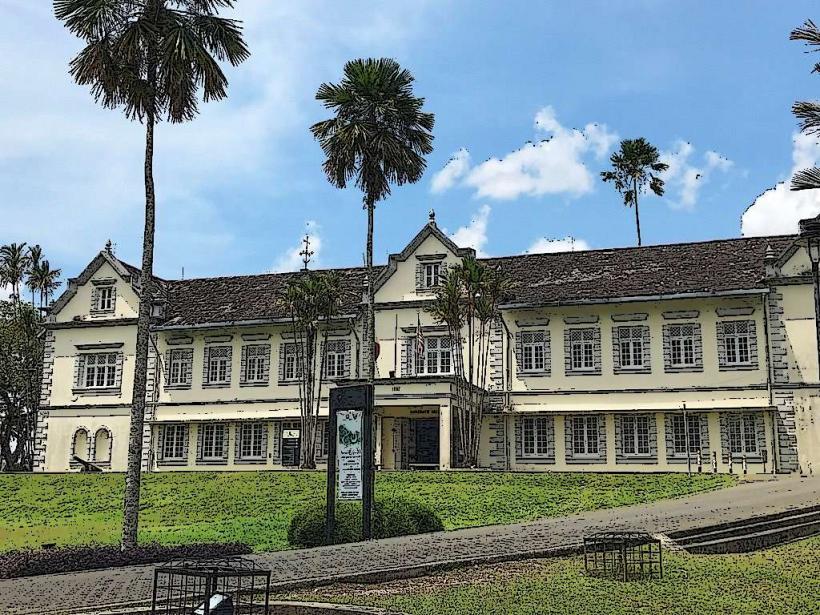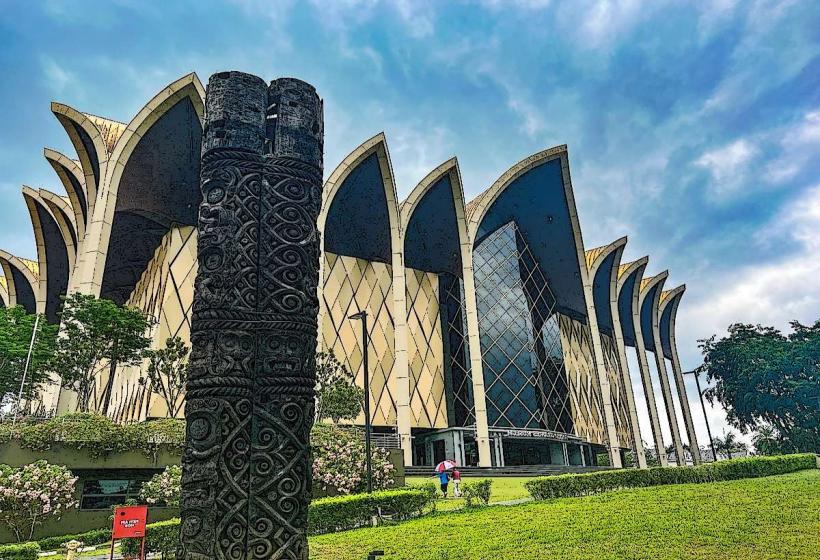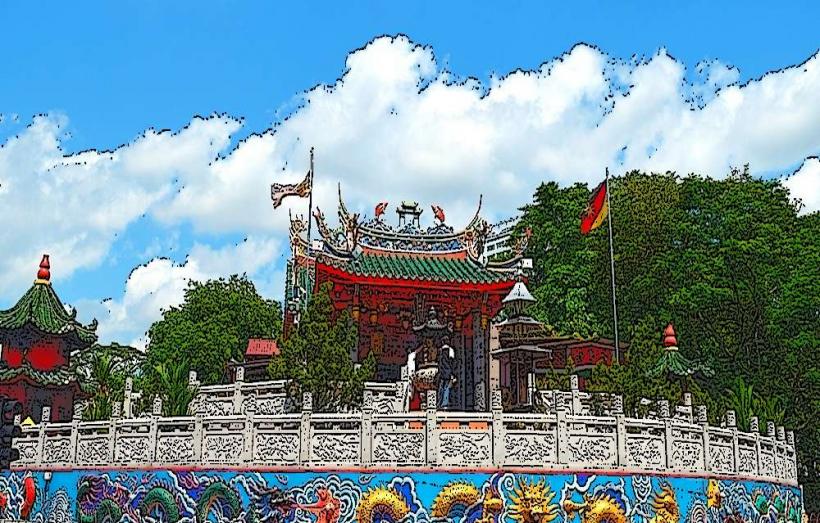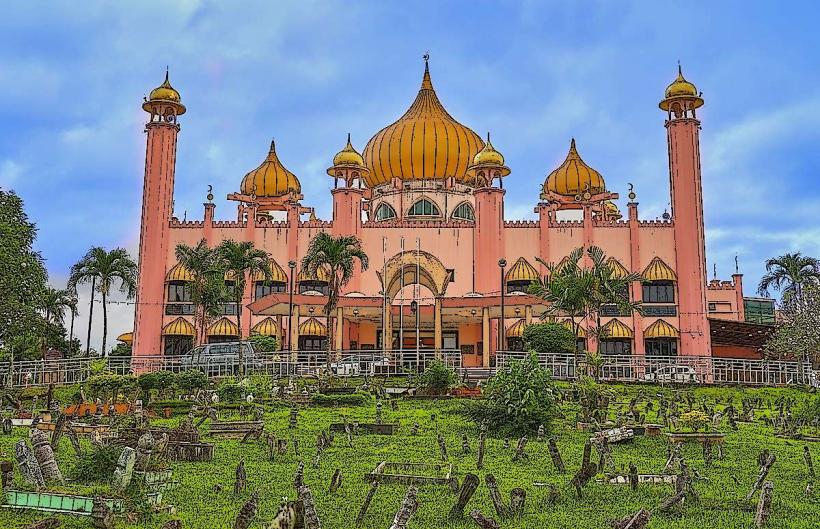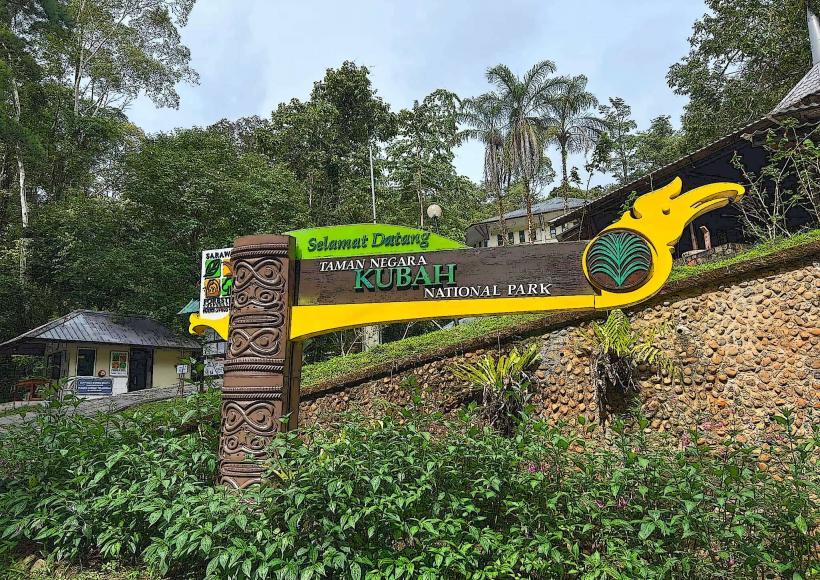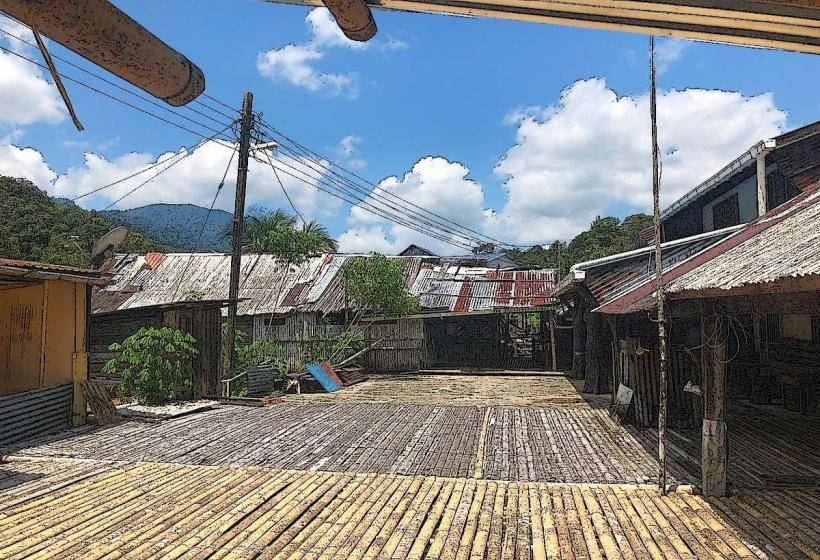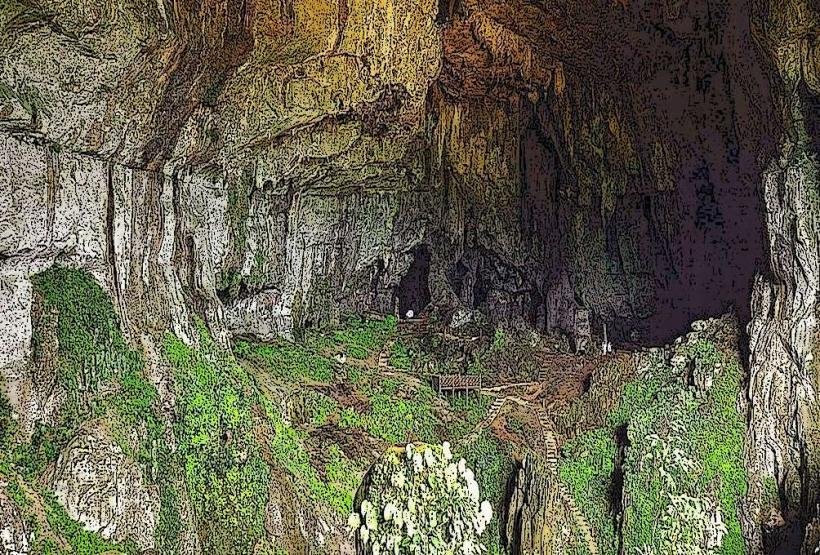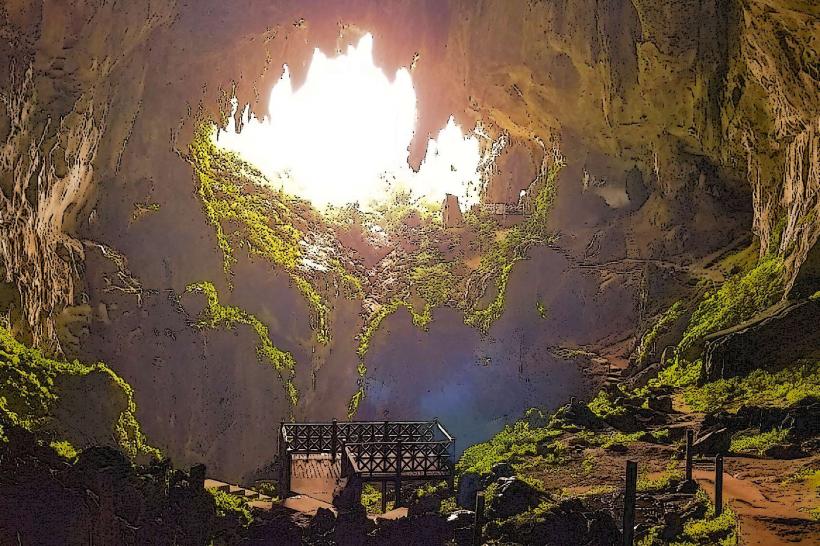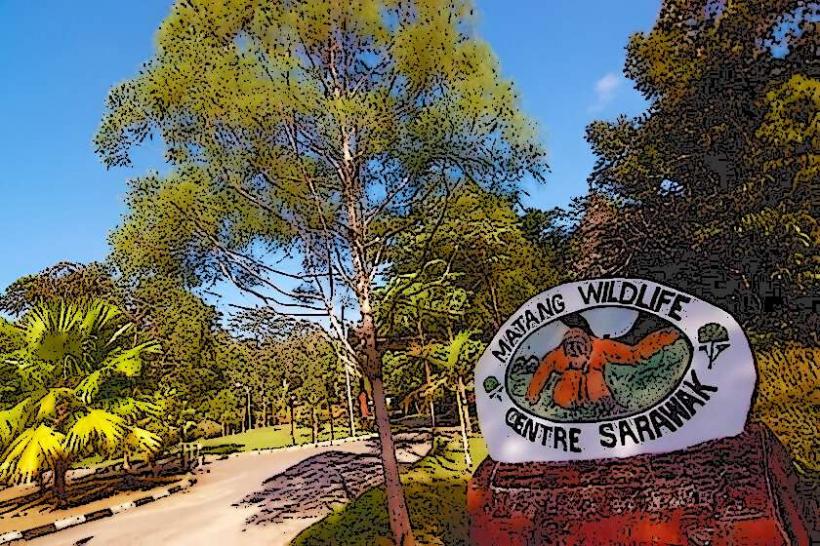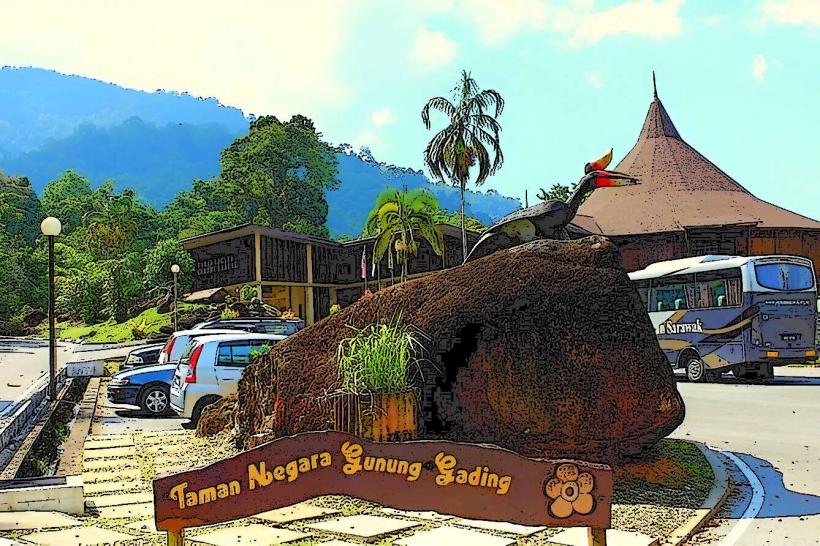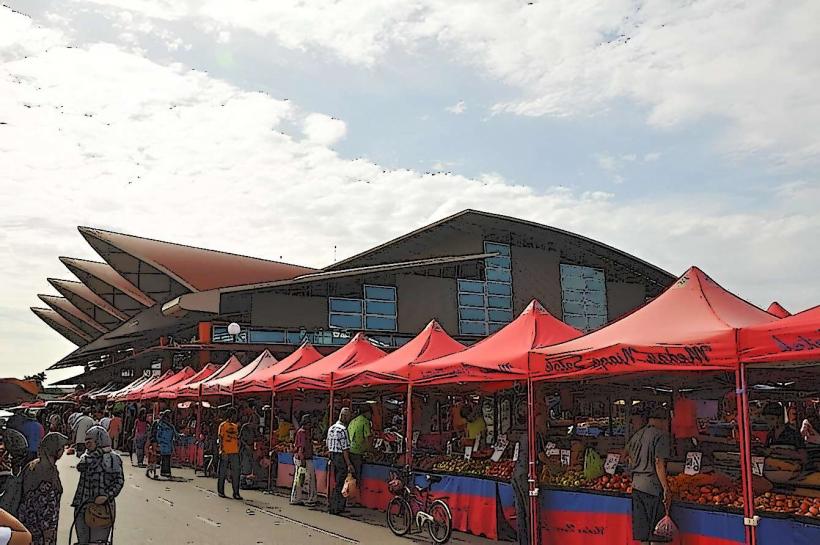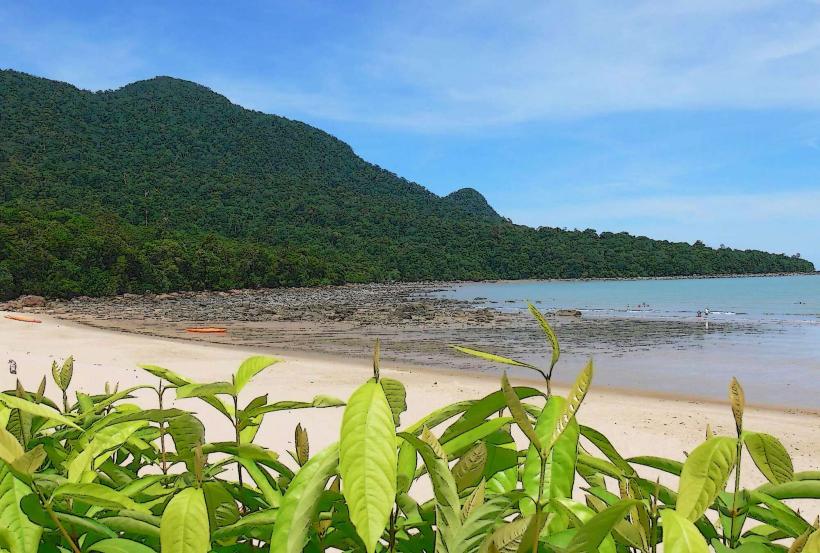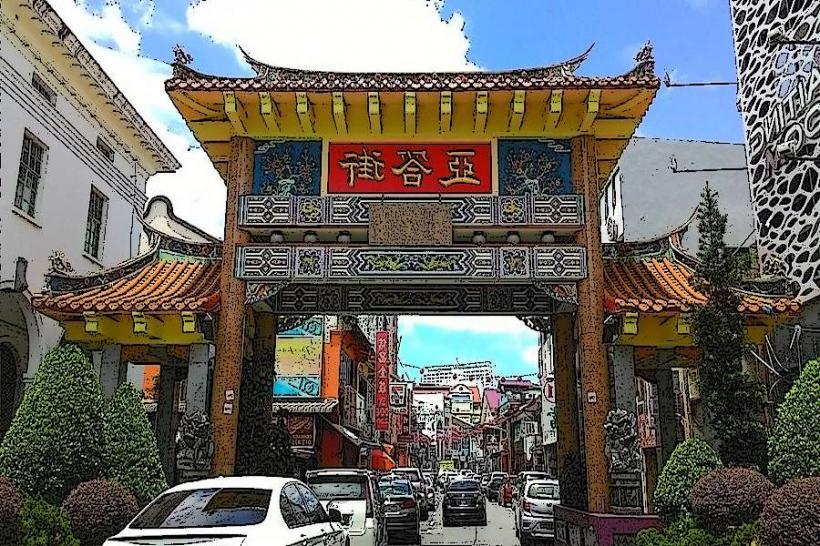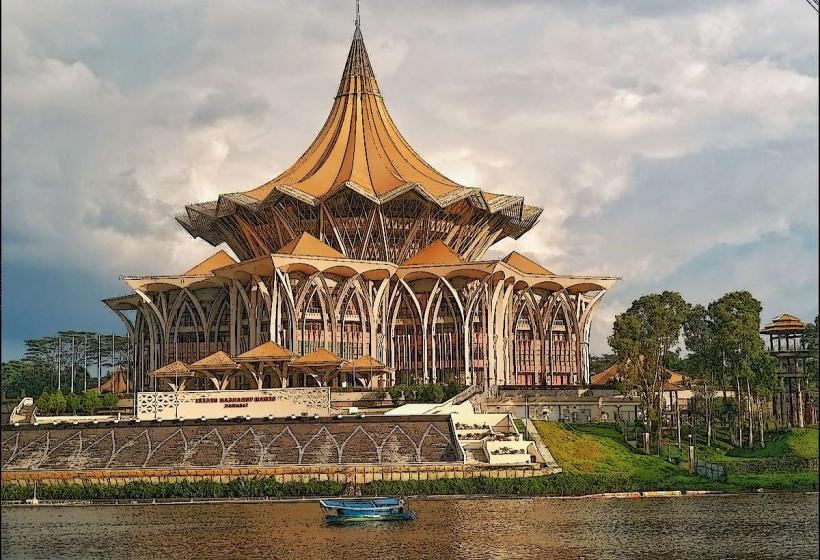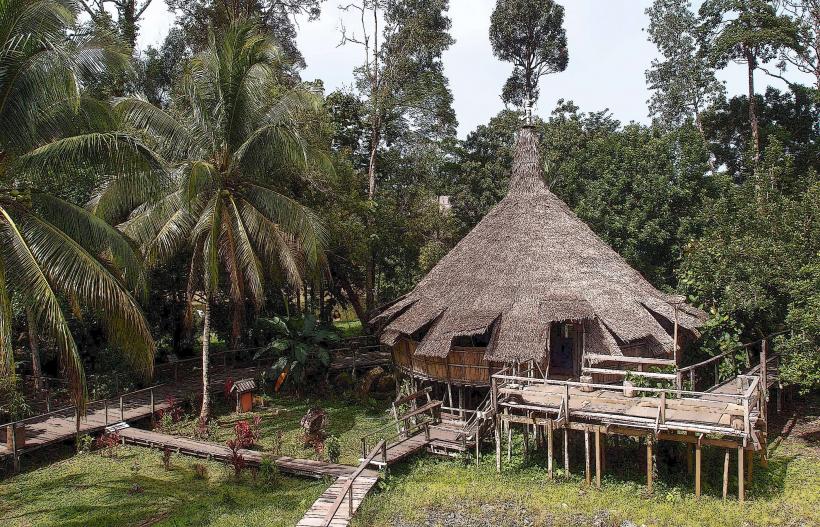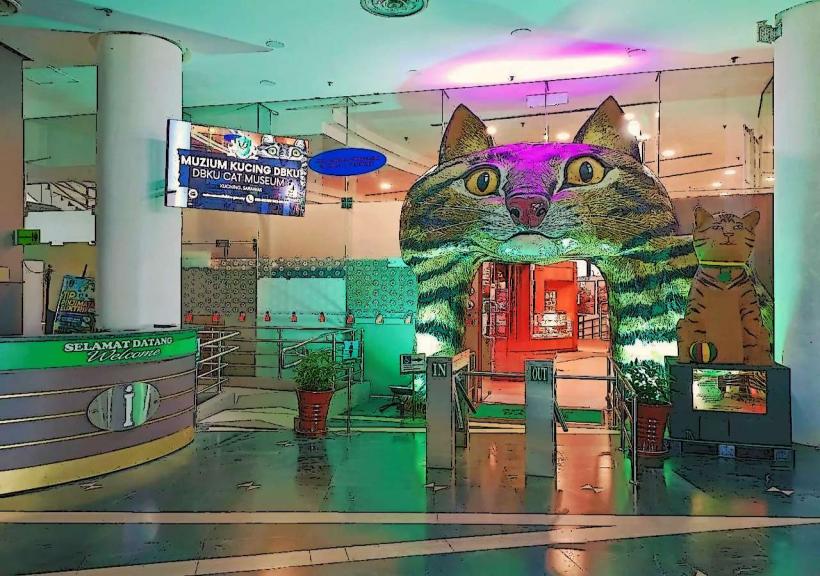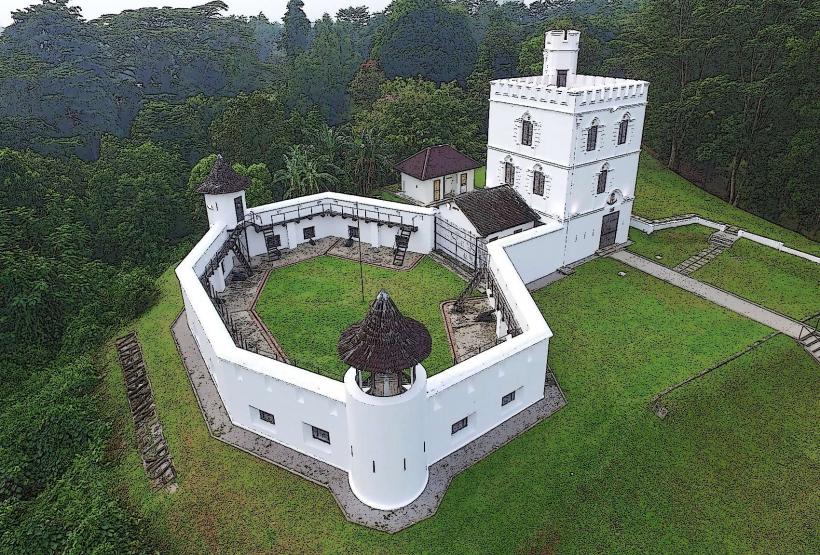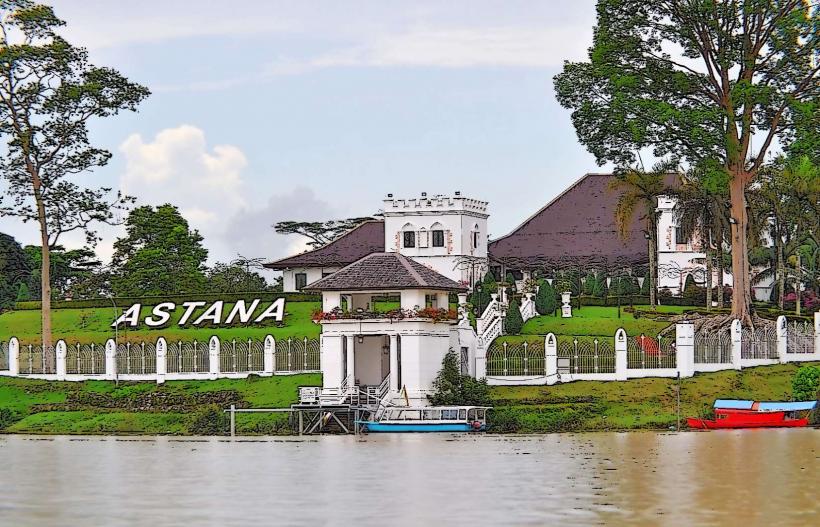Information
Landmark: Chinese History MuseumCity: Kuching
Country: Malaysia
Continent: Asia
Chinese History Museum, Kuching, Malaysia, Asia
The Chinese History Museum is located in Kuching, Sarawak, Malaysia. It documents the history of the Chinese community in Sarawak.
Visual Characteristics
The museum is housed in a pre-war shophouse constructed from brick and timber. The facade features traditional Chinese architectural elements, including decorative eaves and a tiled roof. The building is two stories high with a total floor area of approximately 300 square meters. The exterior paint color is a muted ochre.
Location & Access Logistics
The museum is situated at 14, Carpenter Street, Kuching. This is within the Old Town area, approximately 1 kilometer west of the Kuching Waterfront. Access is via Jalan Carpenter. Limited street parking is available on Jalan Carpenter and adjacent lanes. The nearest public transport stops are along Jalan Chan Chin Ann, served by local bus routes K3, K4, and K5, approximately a 5-minute walk from the museum.
Historical & Ecological Origin
The building itself dates back to the early 20th century, likely constructed between 1910 and 1920. It originally served as a merchant's residence and shop. The museum was established in 2005 to preserve and exhibit the history of Chinese migration and settlement in Sarawak.
Key Highlights & Activities
Exhibits include historical artifacts, photographs, and documents detailing the migration of various Chinese dialect groups to Sarawak, their contributions to the local economy, and their cultural integration. Visitors can view displays on traditional trades, religious practices, and social organizations. The museum offers self-guided tours.
Infrastructure & Amenities
Restrooms are available on the ground floor. Limited seating is provided within the exhibition areas. There is no dedicated shade outside the building. Cell phone signal (4G) is generally good within the museum. Food vendors and cafes are abundant on Jalan Carpenter and surrounding streets.
Best Time to Visit
The museum is open daily from 9:00 AM to 5:00 PM. For optimal viewing conditions with natural light, visiting between 10:00 AM and 2:00 PM is recommended. The climate in Kuching is tropical, with high humidity year-round. No specific tide requirements apply.
Facts & Legends
A notable artifact displayed is a collection of original ledgers from a 19th-century Chinese trading company, providing direct evidence of early commercial activities. Local lore suggests that the original owner of the building was a successful merchant who made his fortune through the pepper trade.
Nearby Landmarks
- Sarawak Museum (1.2km Northeast)
- Main Bazaar (0.3km East)
- Tua Pek Kong Temple (0.4km East)
- Old Courthouse (0.8km Southeast)
- Kuching Waterfront (0.6km East)

